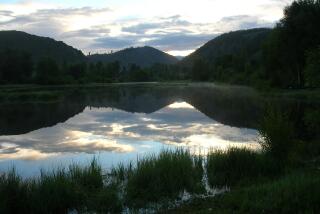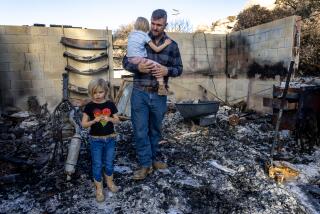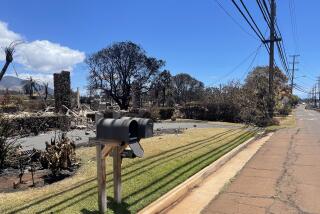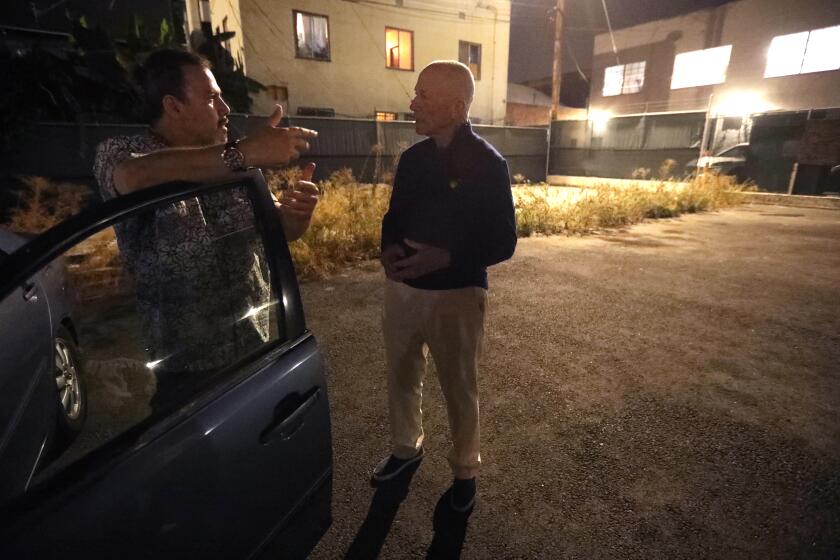Op-Ed: We went back one last time after the Camp fire. We’ll never call it home again
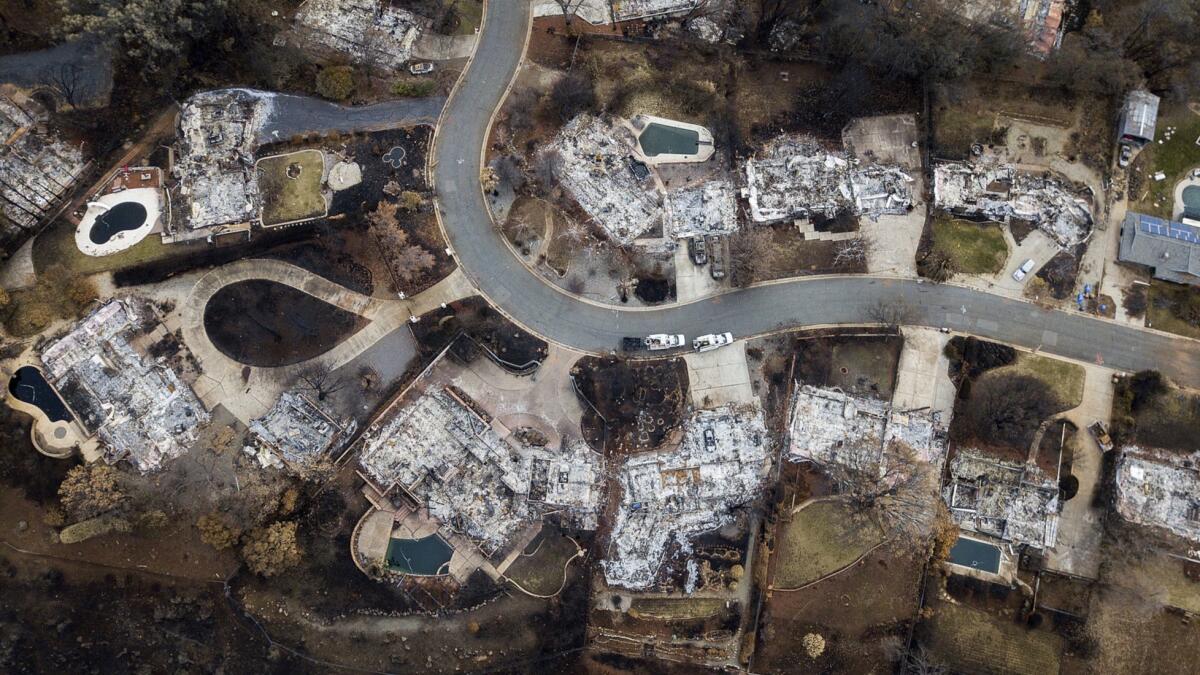
In mid-April I found myself once more driving a U-Haul pickup truck from my former home on the Paradise ridge to our new digs in Sacramento. Like so many sites overwhelmed by the Camp fire in November, our place in Magalia is a pile of rubble. My wife and I went back one last time, before the bulldozer came, to see what we might gather that we’d overlooked on other visits during which we had grieved and paid respects to the little house we lived in for nearly two decades.
It was a beautiful day. Off to the west, the Sutter Buttes were in sharp focus, in clear contrast to the flat of the valley where they rise from the rice lands. Even up on the ridge, the rains that might have saved thousands of homes from conflagration had they come just a bit sooner had created a verdancy greener than any we could recall, though springtime in those foothills and that valley is always a glory.
The pickup was loaded with what we’d managed to retrieve — a statuette of Alice in Wonderland purchased at Disneyland when the kids were little, a dozen or so flower pots and four big planters, a replica of Michelangelo’s David, much smaller than the original, of course, but still about 5 feet tall and heavy, bought at an auction a long time ago. There was also a small fountain featuring a miner panning for gold.
None of it was worth what it cost to rent the truck, but when I wrestled David into place in the backyard of the house we’re now renting in Sacramento, it did a lot to make the place seem like home.
It’s desolate as hell up there, and to see daily what is gone, we think, would be painful.
We’ve spent a chunk of time up there on the ridge property, raking and digging within the foundation, especially at the spot where a display cabinet stood, with lots of treasures in it, including my wife’s grandfather’s pocket watch, a memento she hoped to reclaim from the fire. It wasn’t to be, alas, and not finding it was just one of the sorrows of that farewell visit.
In the center of what had been the court we’d lived on, I found the bones of a small doe. The hide was a little ways off, over by where my neighbor used to park his truck in front of his house. There was a blue-black remnant of a hoof, delicate and perfect in its design. It had been devoured after the flames, but seeing those rib bones, that hoof and that hide, brought to mind all the creatures, including the human ones, that had been defenseless against the wind that propelled the flames, faster than they could flee.
When we first pulled up into the steep driveway that had once led to our garage, my wife began to cry. I hugged her, uttered the barren words of consolation, felt some of what she was feeling though I didn’t cry. I have not yet shed a tear for what we lost, not even for our cat, Callie. We called for her for months after the fire when we were there, hoping she might trot out toward us through the broken glass and the ash, this lovely calico cat with the fierce independence that may have cemented her doom.
We do not plan to rebuild. There is a problem with toxicity in the water and maybe ground contamination beyond what will soon be scraped away. It’s desolate as hell up there, and to see daily what is gone, we think, would be painful. Our neighbor, decades younger, is probably going to buy our lot for what it will cost to pay for the cleanup, about $14,000, which was factored in to our insurance settlement. We are well satisfied with where we are in Sacramento. If anyone landed on their feet in this upheaval it is surely us — near our younger daughter, in a pretty neighborhood, with a good landlord — though I wouldn’t wish this kind of move on anyone.
Enter the Fray: First takes on the news of the minute »
Tomorrow, I will plant flowers in every one of the pots I rescued, certain they will reward us whenever we take note of them, each of them containing new growth and memories, too, reminders of who we were, the life we knew, the pleasures that have not been lost.
Two of the big planters now frame the steps to our rental house. I don’t know what I’ll plant in them. Maybe petunias. Or pansies, bearing the French root word pensee, or thoughts, which seems appropriate. The other two planters contained peony bushes. Both are also now relocated and, rather remarkably, one holds a very healthy plant that survived both the fire and the winter. The other peony, just as remarkably, didn’t.
Terrifying disasters have struck in other places since the fire that wiped out most everything on the Paradise ridge. Our woes are, quite literally, yesterday’s news. Today, the sun is shining, new flowers are going into old pots, and there’s that peony, thriving here at the house that is, for the time being, ours.
As was the one in Magalia. Ours until it wasn’t anymore.
Author and former teacher Jaime O’Neill last wrote in November and December about escaping the Camp fire.
Follow the Opinion section on Twitter @latimesopinionand Facebook
More to Read
A cure for the common opinion
Get thought-provoking perspectives with our weekly newsletter.
You may occasionally receive promotional content from the Los Angeles Times.
